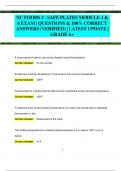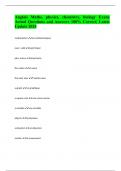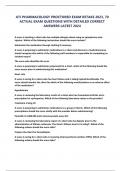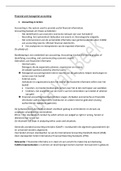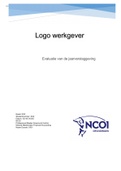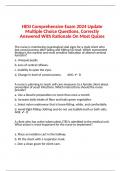Overig
LCP4804 PORTFOLIO MEMO - OCTOBER 2022 Advanced Indigenous Law - UNISA _DETAILED FOOTNOTES & BIBLIOGRAPHY INCLUDED
- Vak
- Instelling
LCP4804 PORTFOLIO MEMO - OCTOBER 2022 Advanced Indigenous Law - UNISA DETAILED FOOTNOTES & BIBLIOGRAPHY INCLUDED QUESTION 1 Critically discuss the differences between living customary law and official customary law. [30] Official Customary Law In general, the official custo...
[Meer zien]




